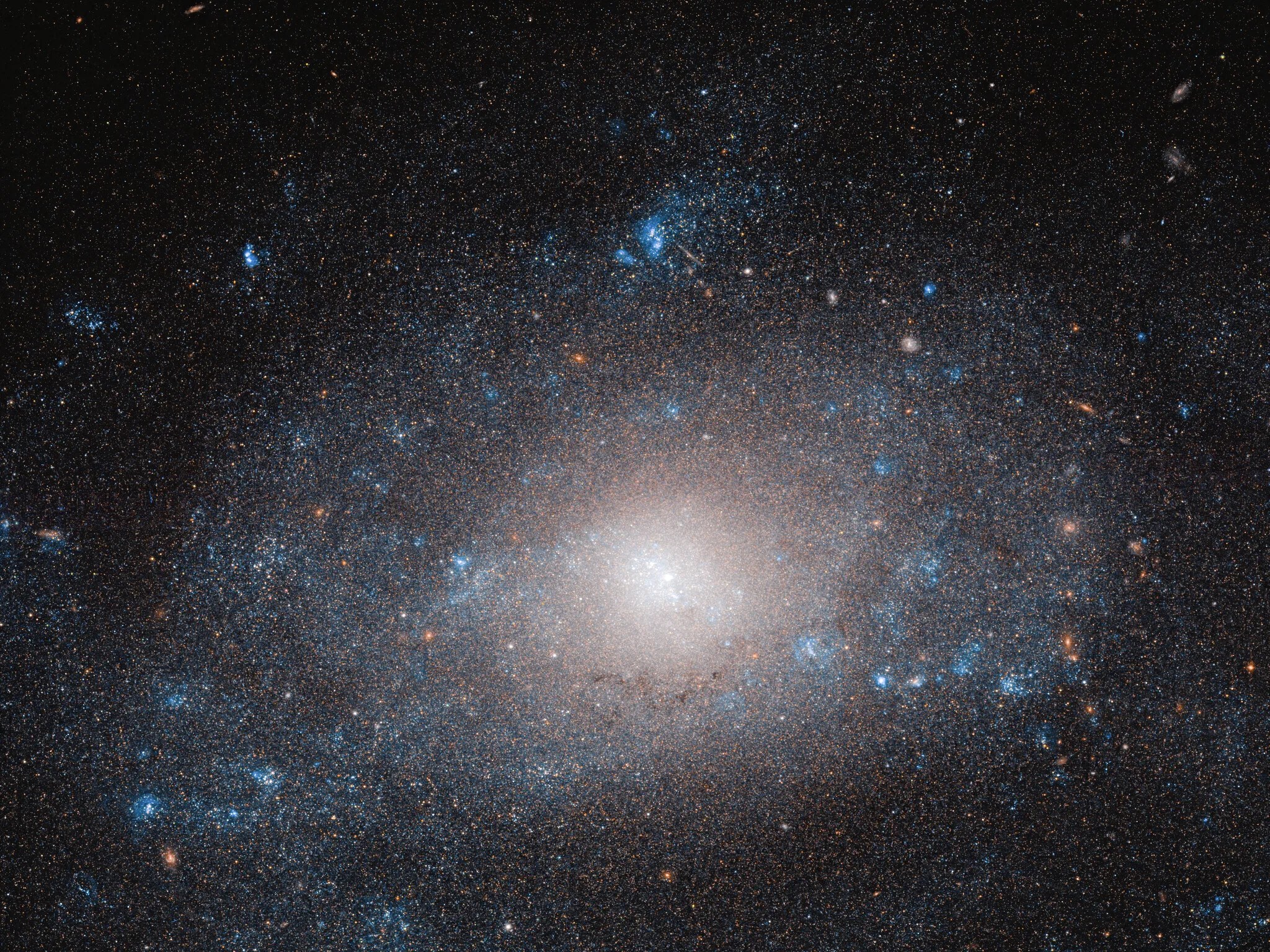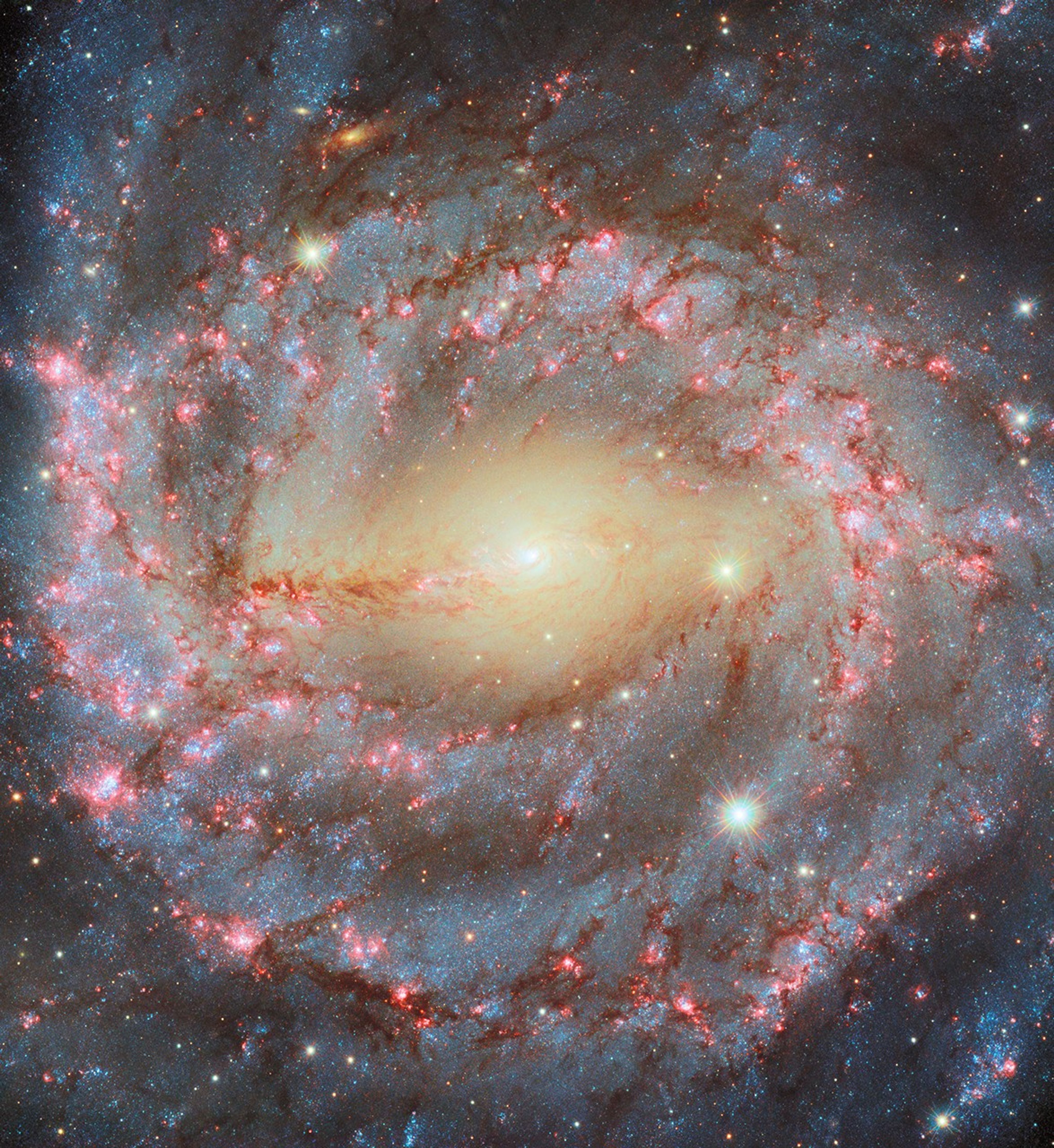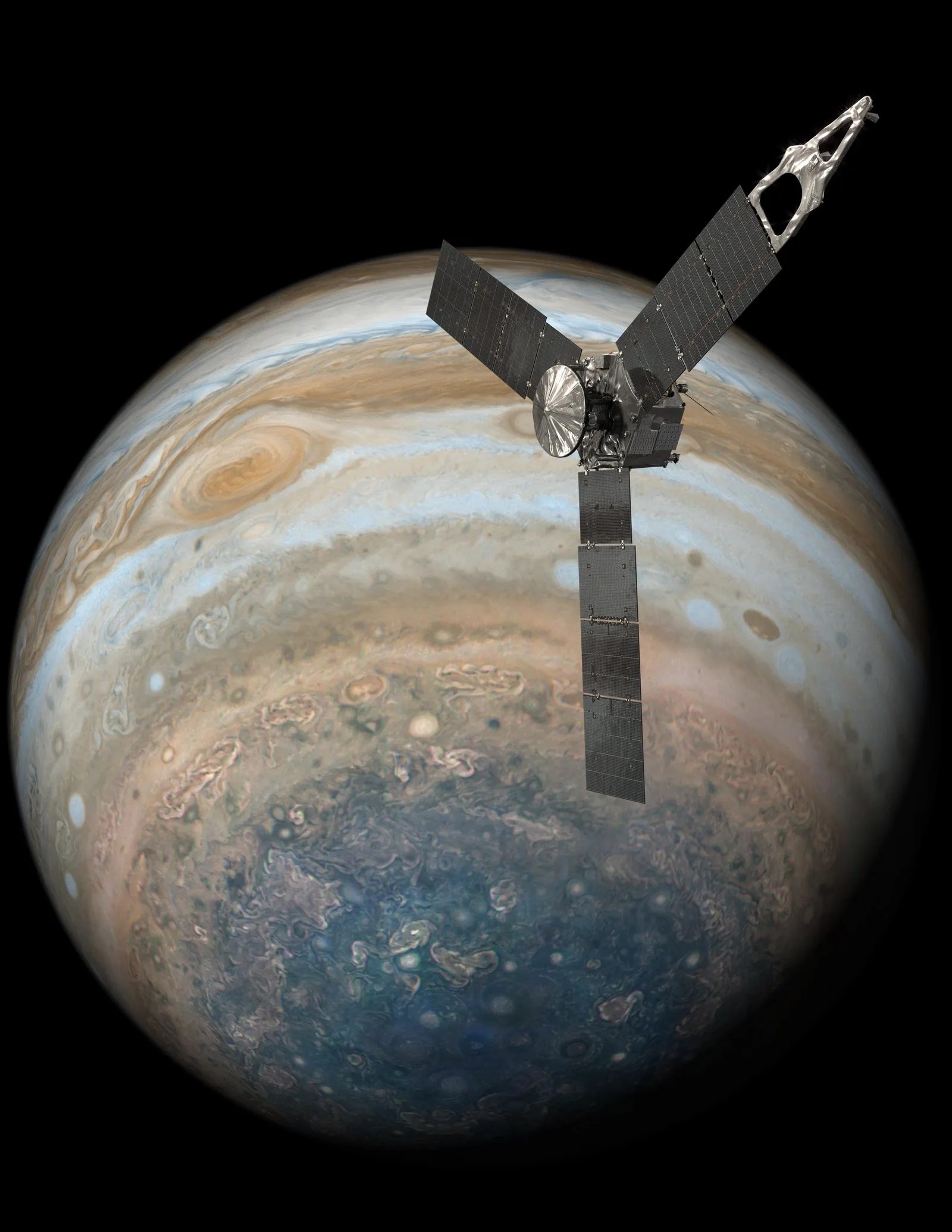1 min read

Resting on the tail of the Great Bear in the constellation of Ursa Major lies NGC 5585, a spiral galaxy that is more than it appears.
The many stars and clouds of dust and gas that make up NGC 5585, shown here in this Hubble image, contribute only a small fraction of the total mass of the galaxy. As in many galaxies, this discrepancy can be explained by the abundant yet seemingly invisible presence of dark matter, a mysterious material that astronomers can’t directly observe.
The stellar disk of the galaxy extends over 35,000 light-years across. When compared with galaxies of a similar shape and size, NGC 5585 stands out by having a notably different composition. Contributing to the total mass of the galaxy, it contains a far higher proportion of dark matter.
Hot spots of star formation can be seen along the galaxy’s faint spiral arms. These regions shine a brilliant blue, contrasting strikingly against the ever-black background of space.
Text credit: ESA (European Space Agency)







